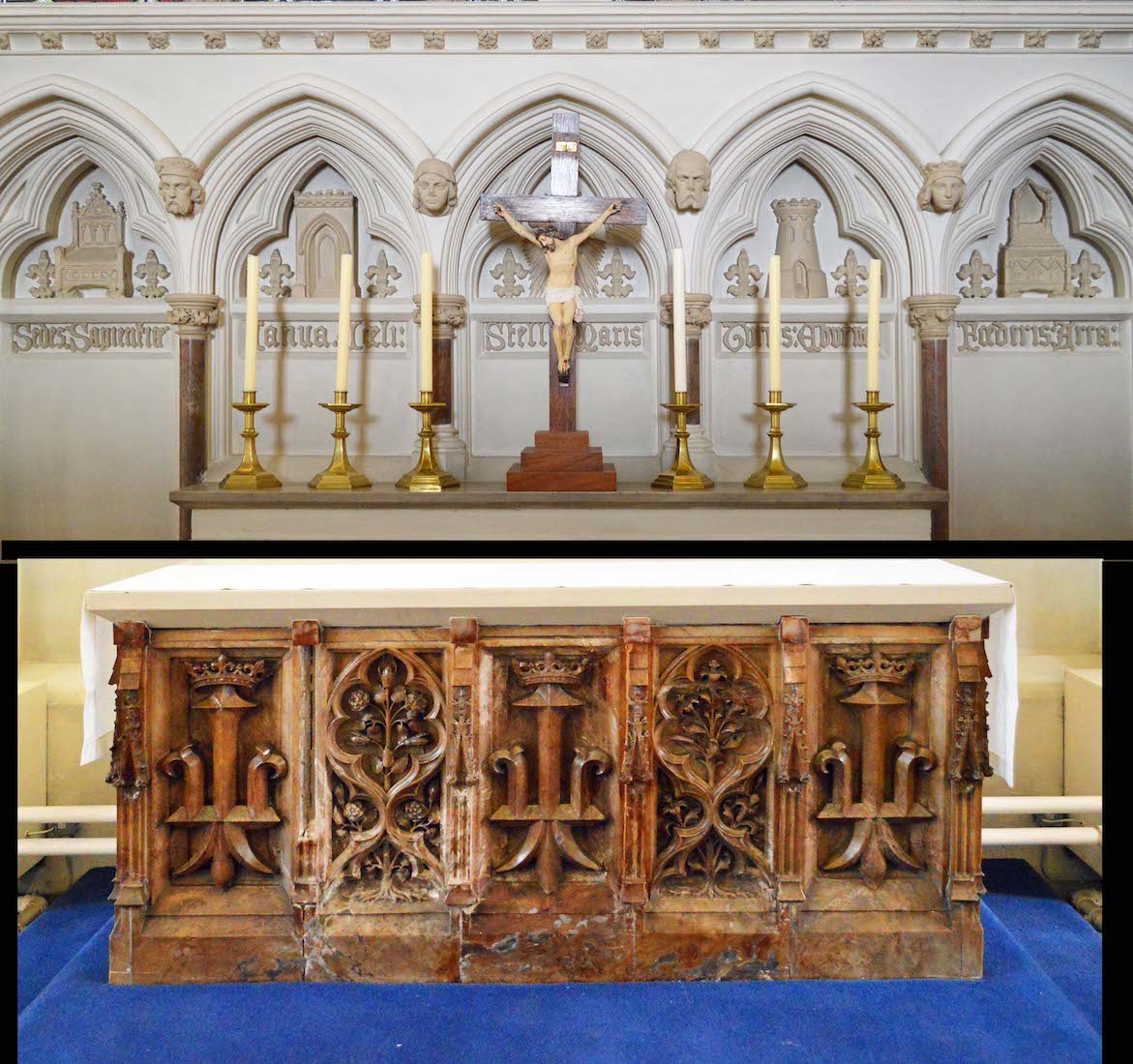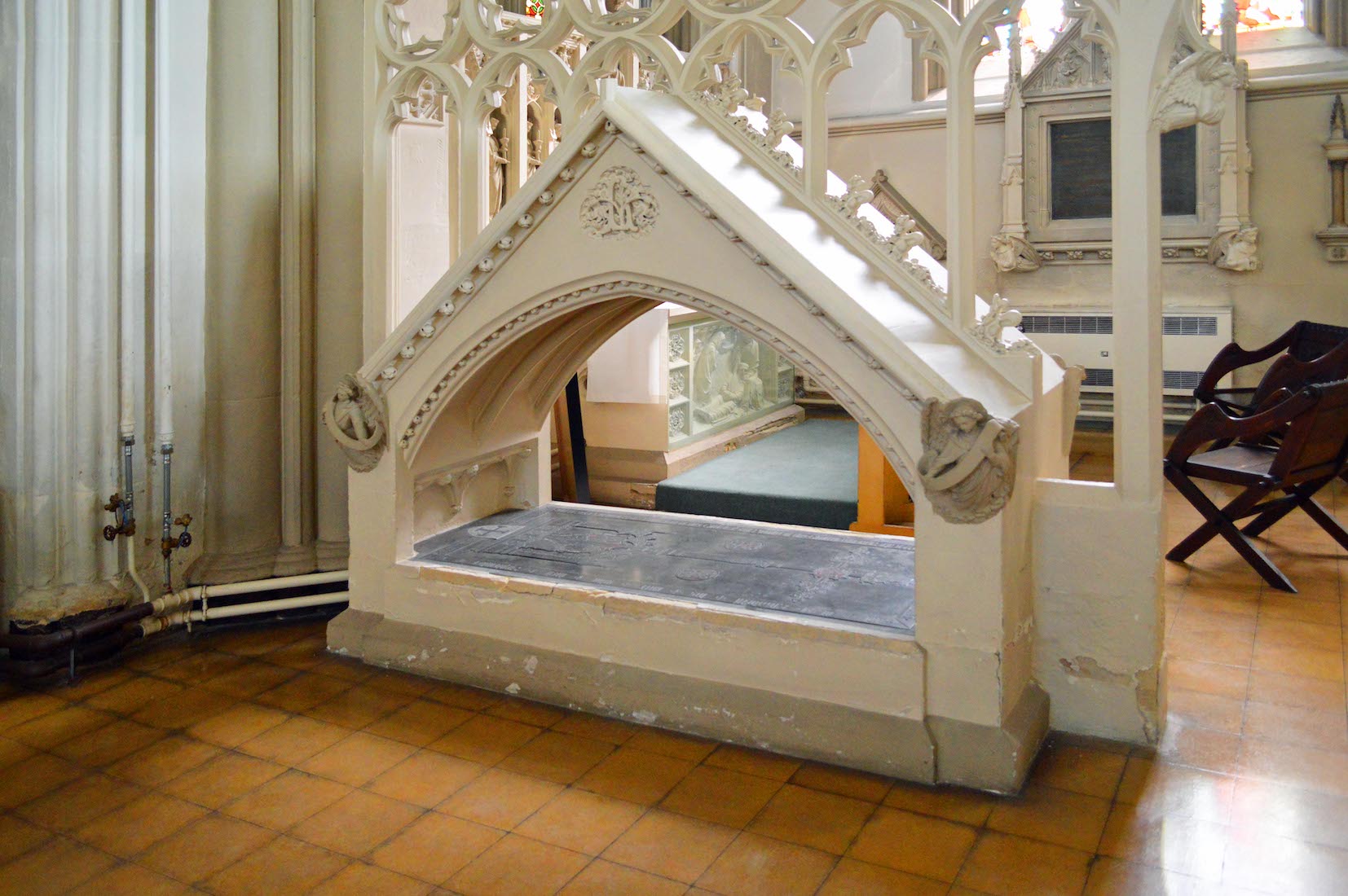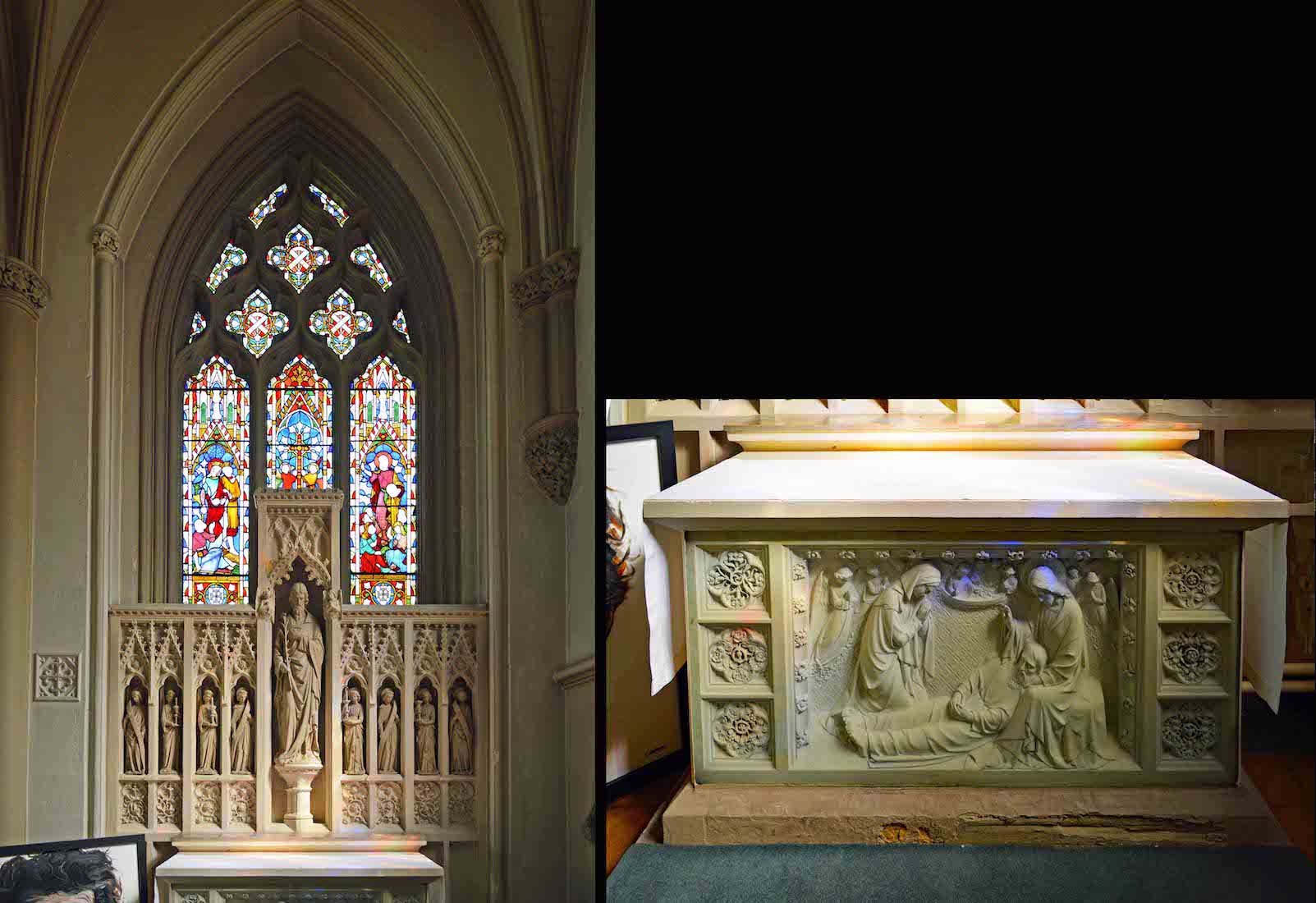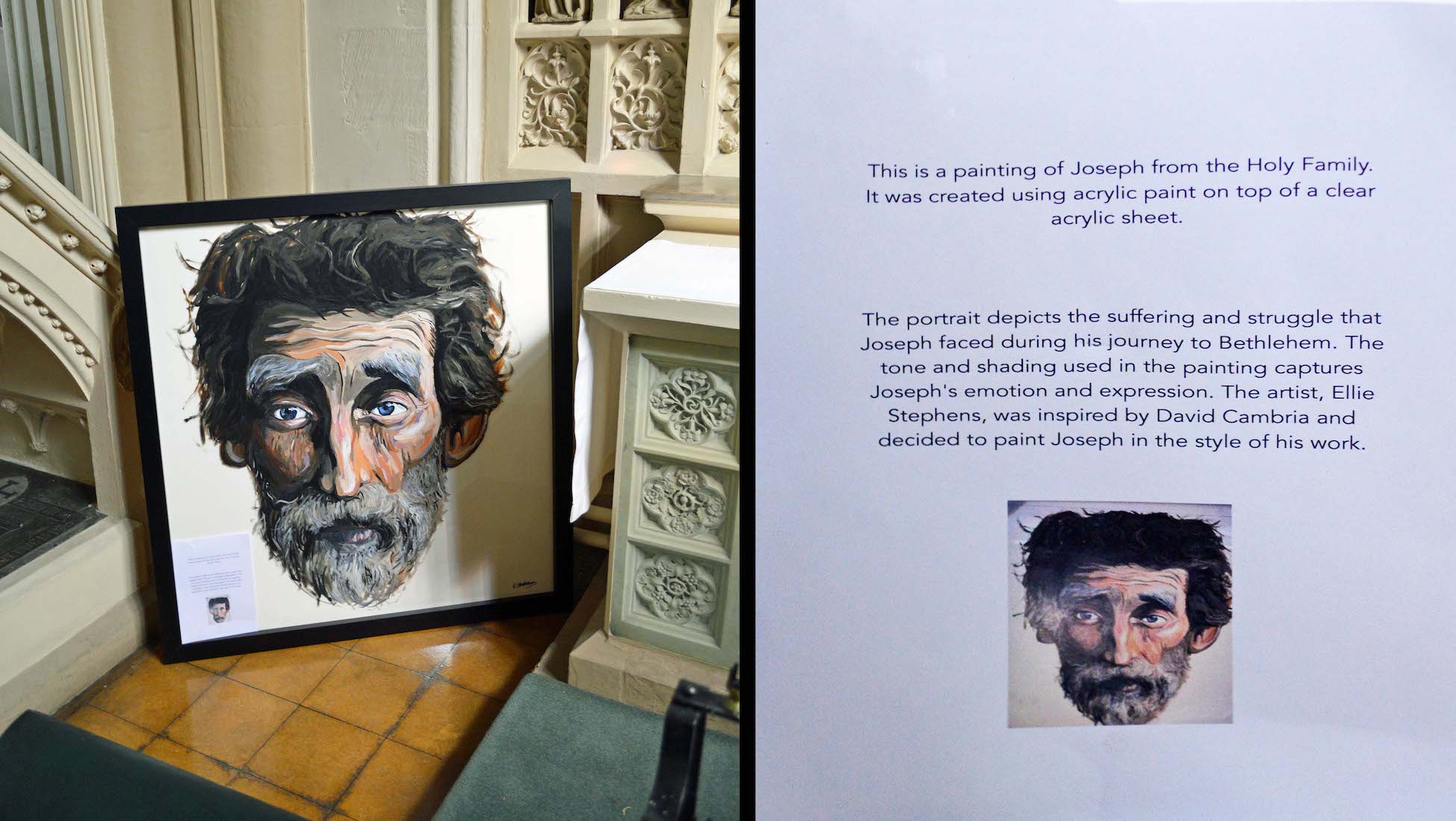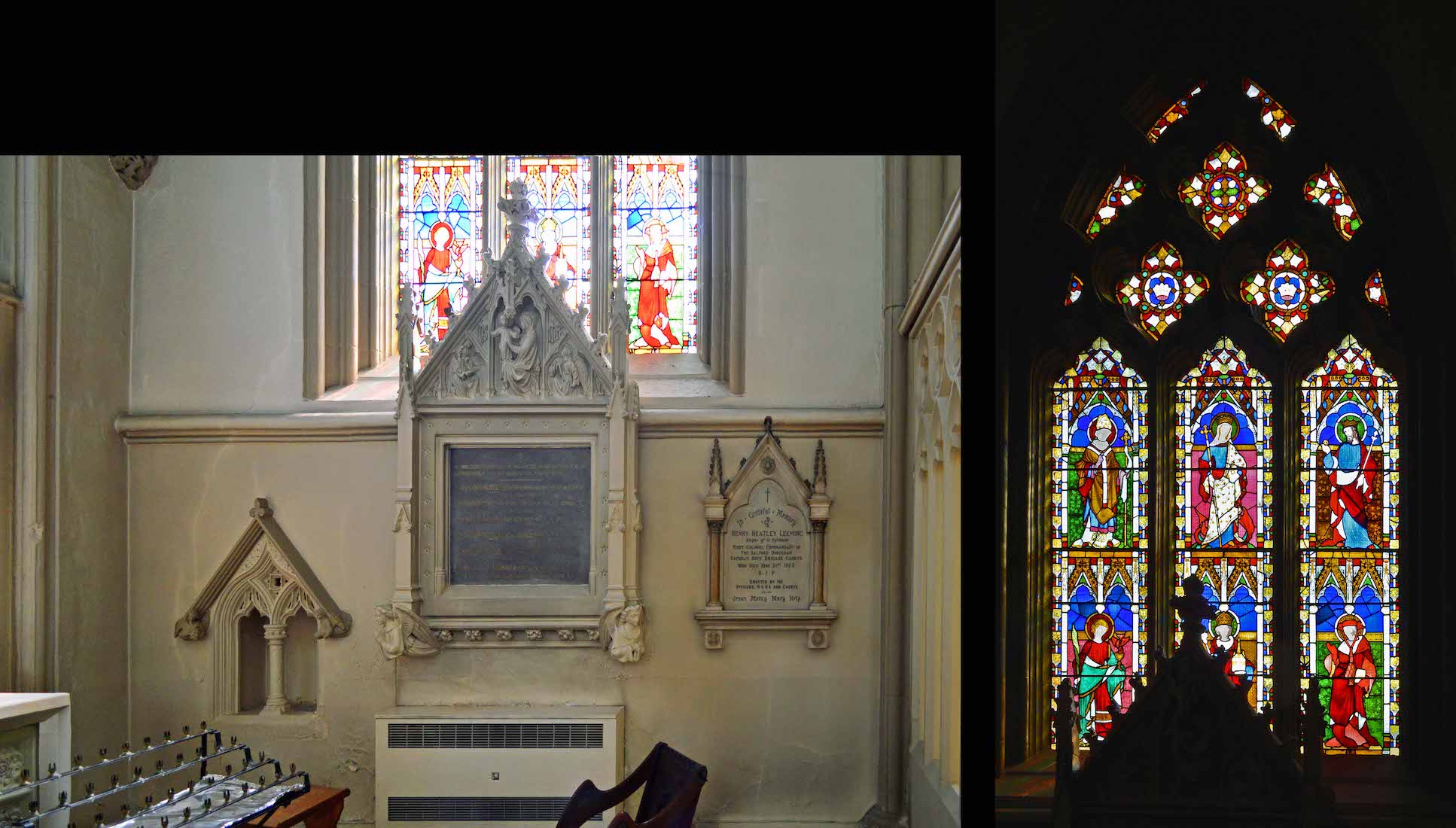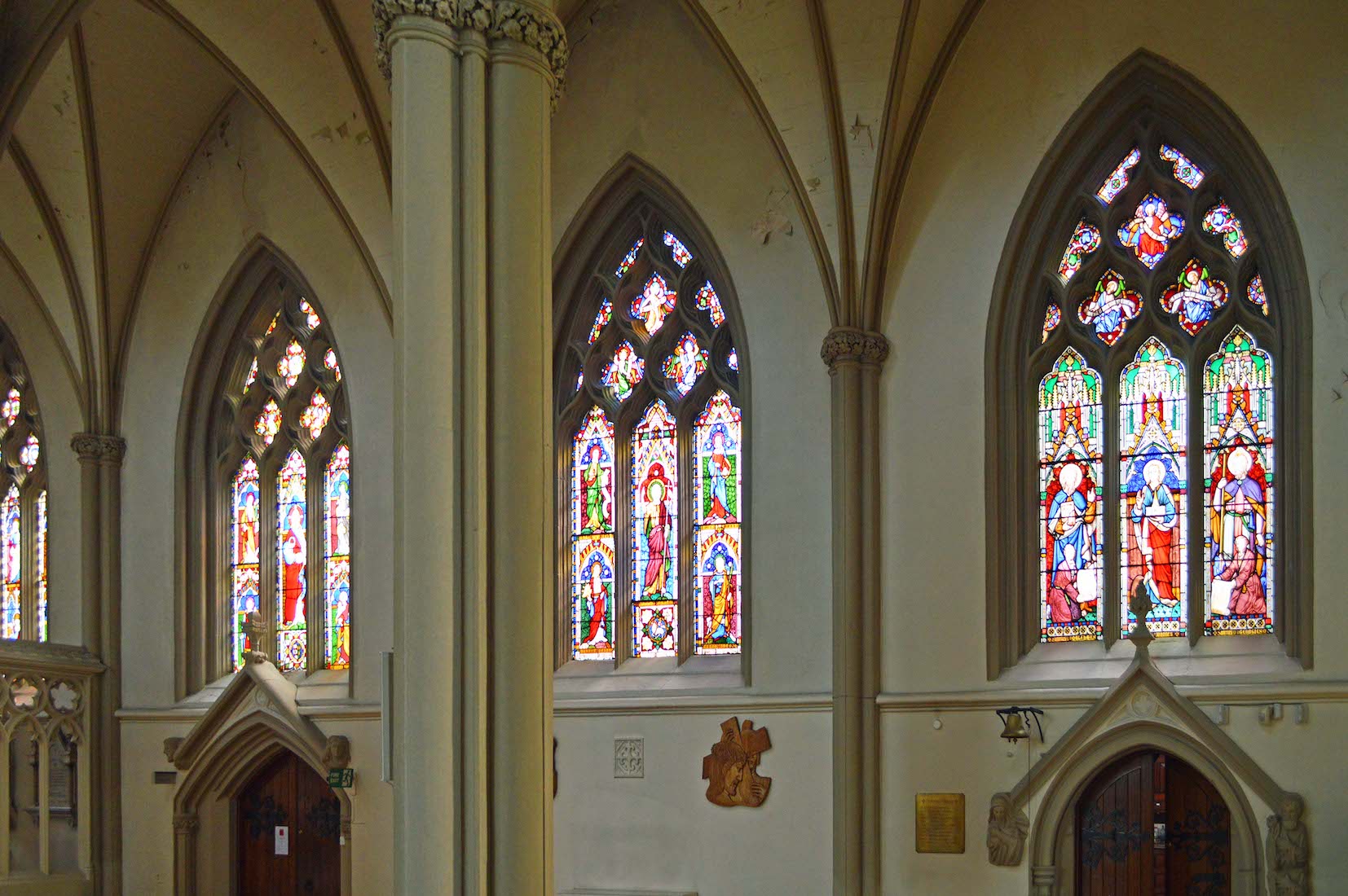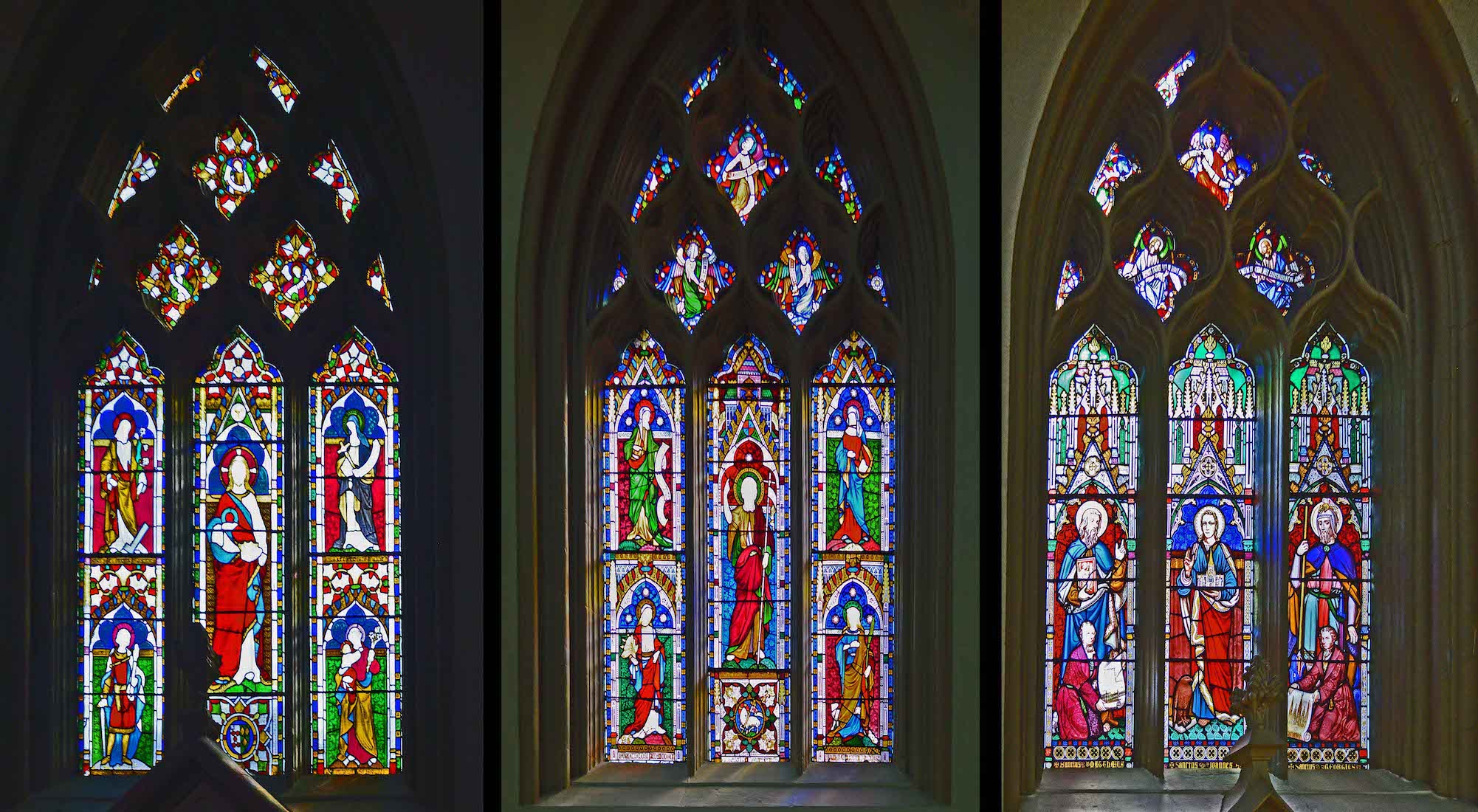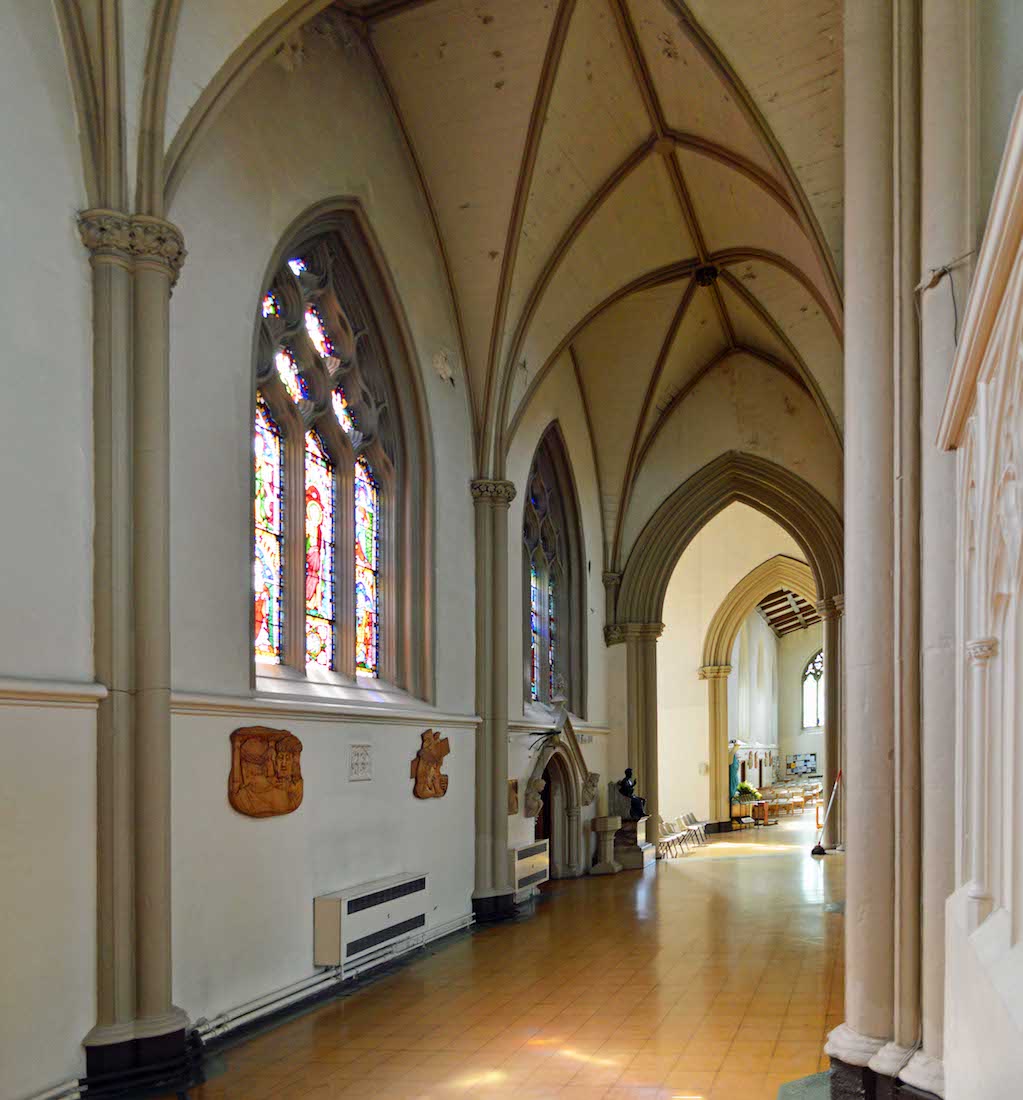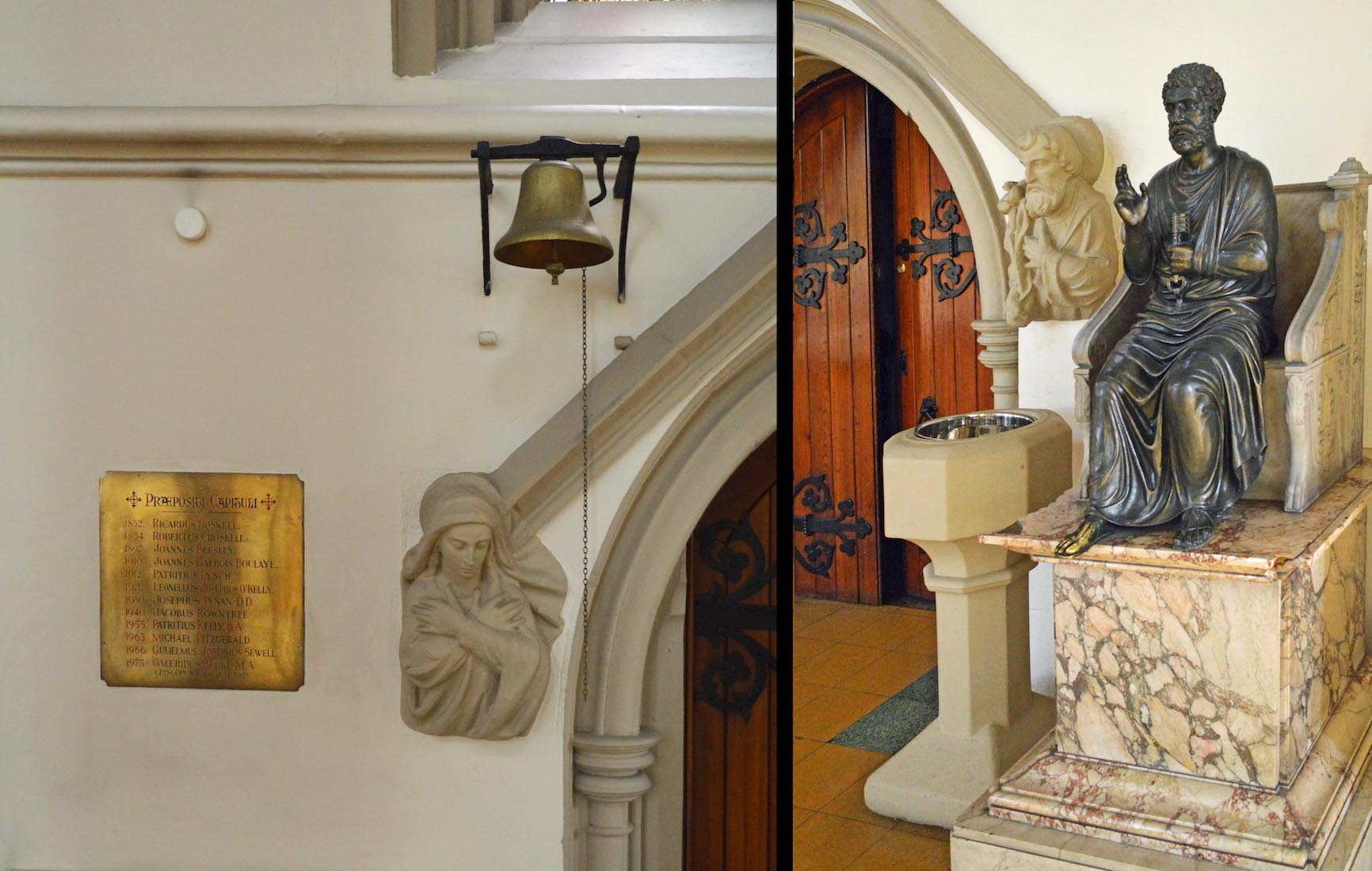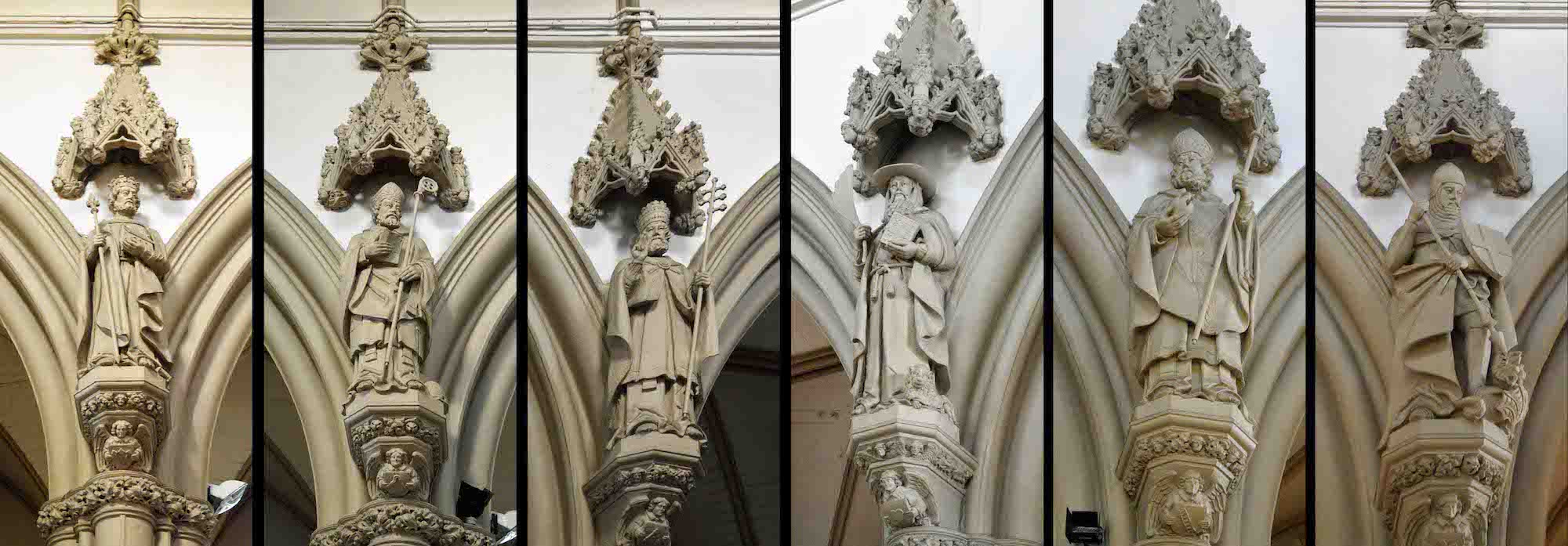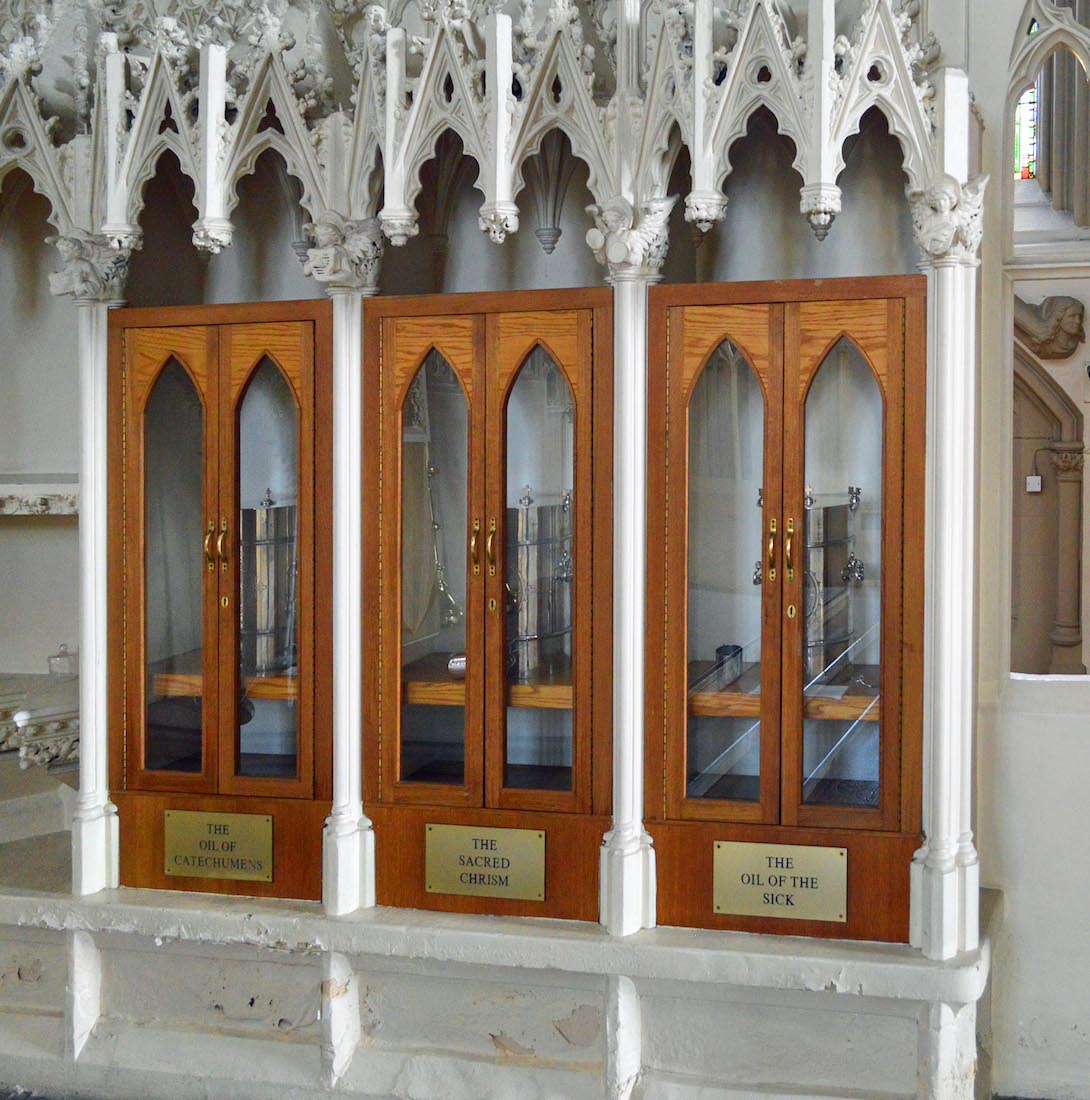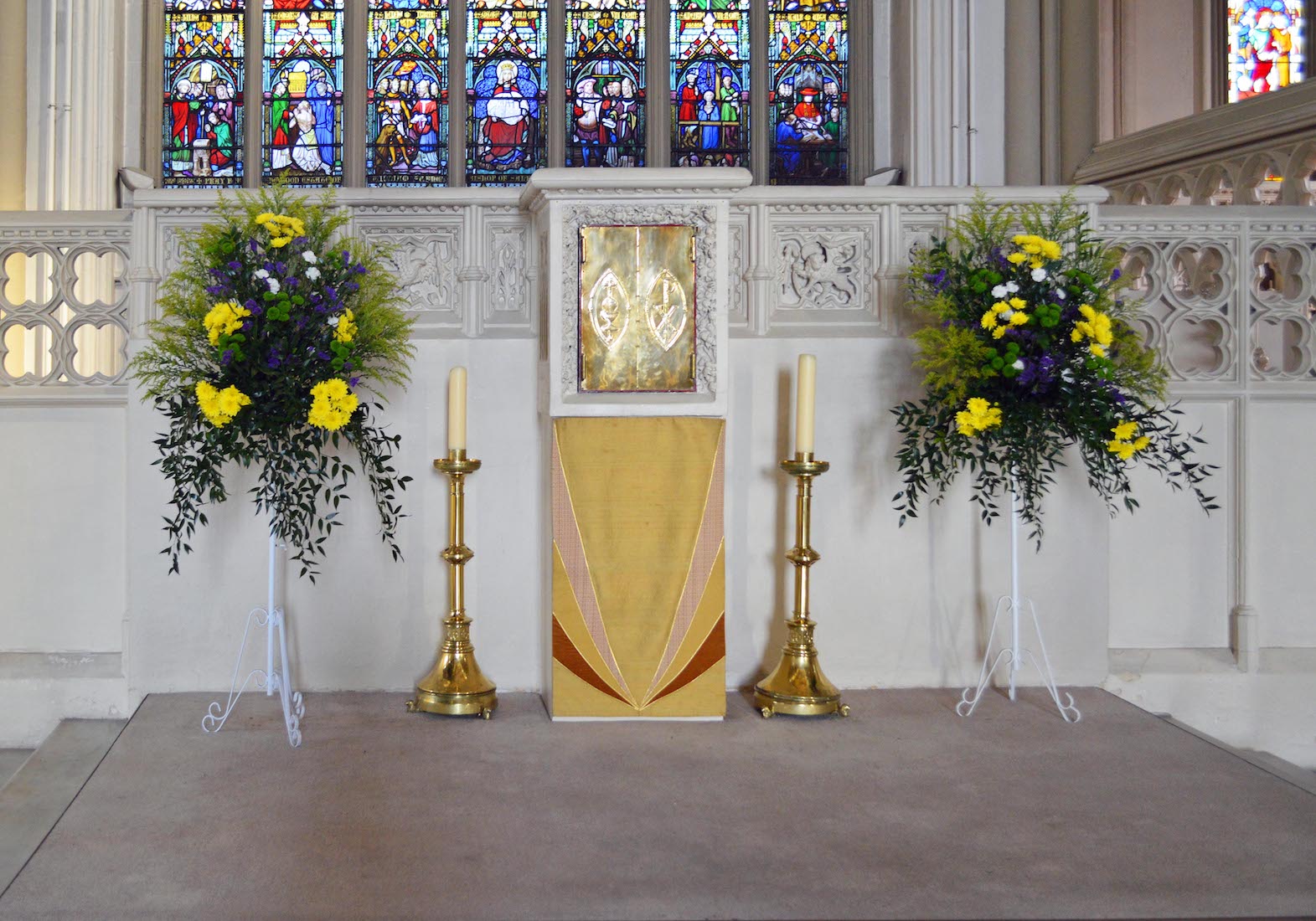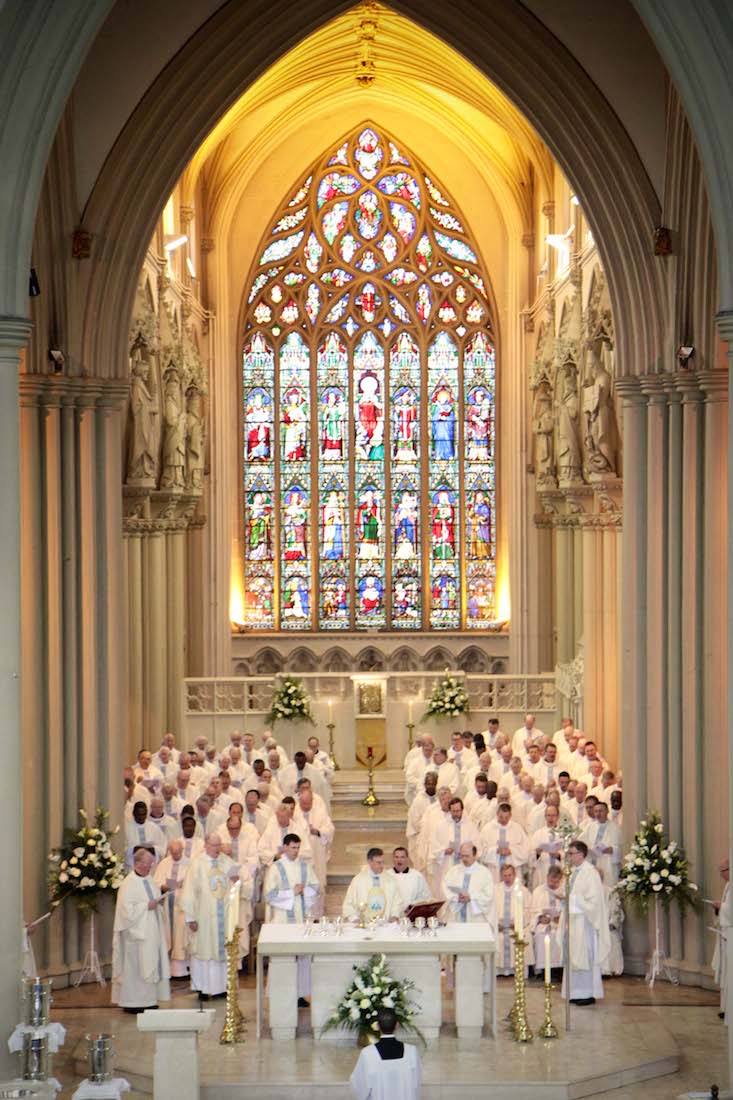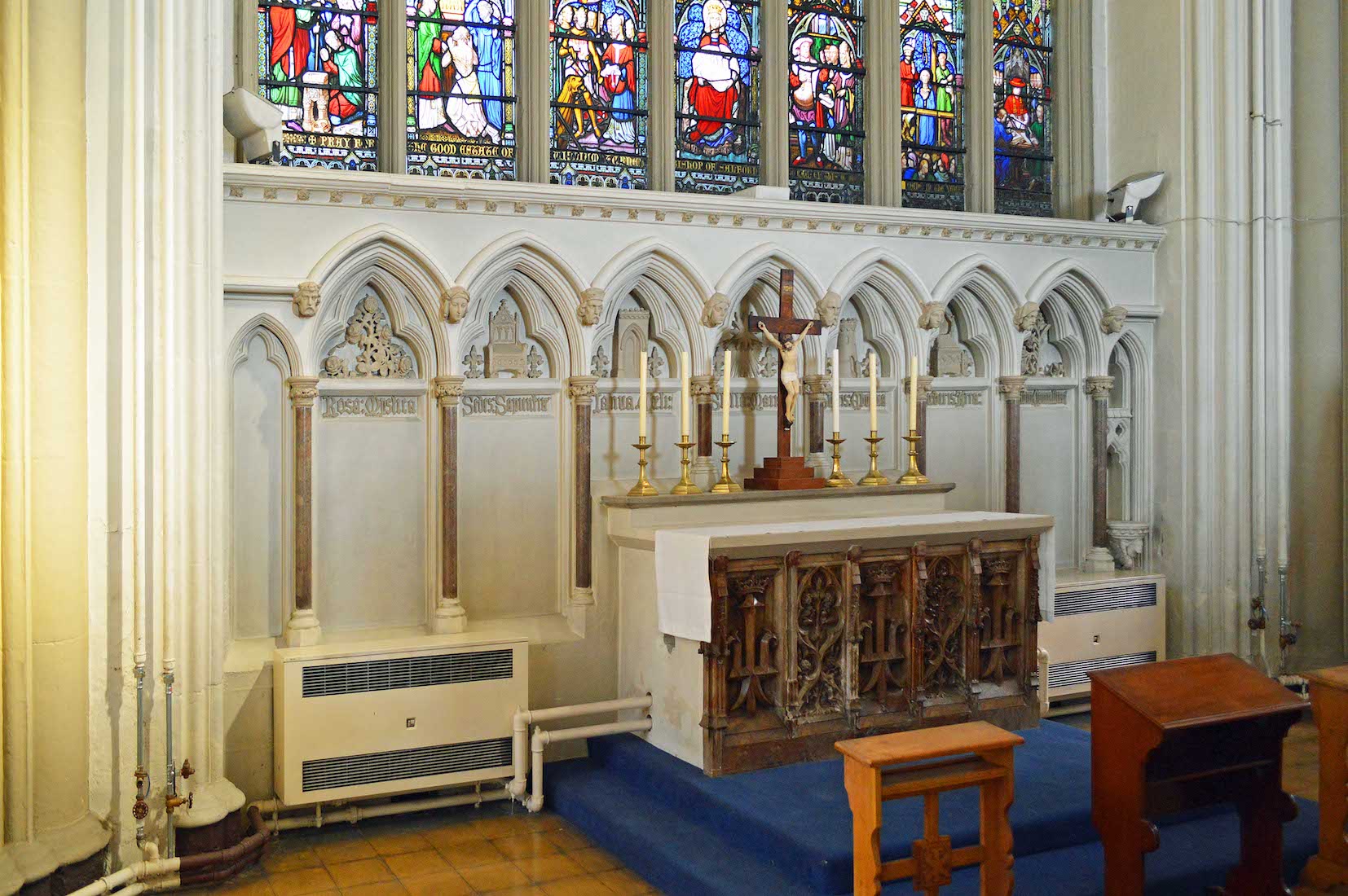
We can move from the Lee Chantry to the adjacent Lady Chapel, passing through an arch in the separating screen. The Lady Chapel has a rather weatherbeaten old altar, with a crucifix and six candlesticks. Behind is a simple reredos with Marian texts and emblems. Soaring above is the Great East Window. PLAN
62. GREAT EAST WINDOW
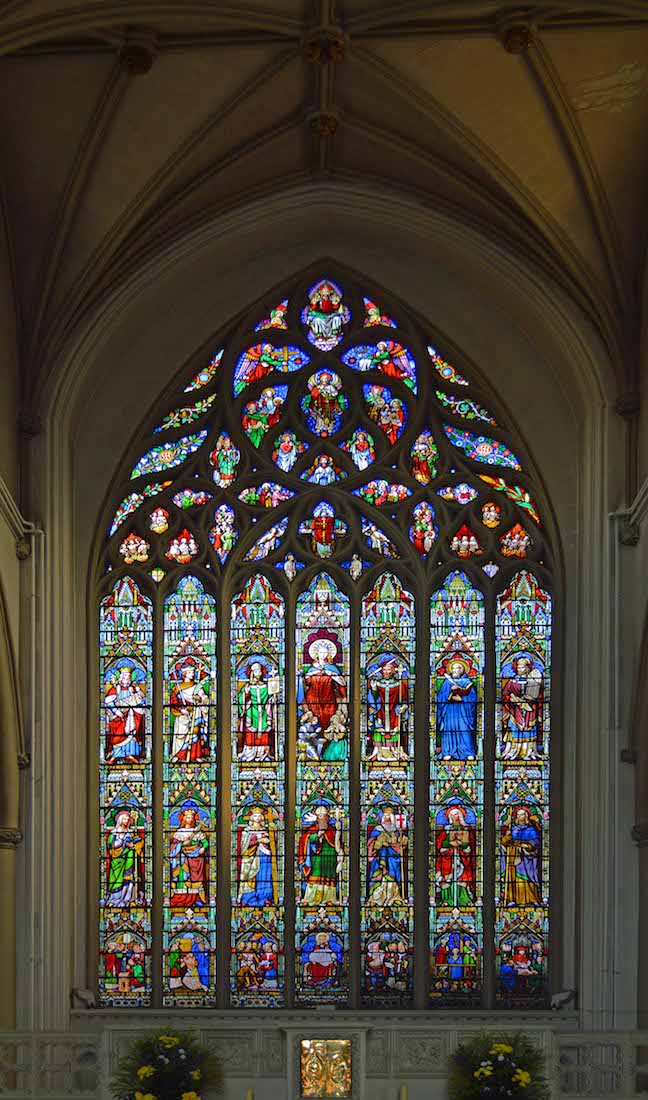
The East window by William Wailes, dated 1854, is on the theme of the story of Catholicism in England from the conversion of King Ethelbert by St Augustine through to the Restoration of the Hierarchy, including a scene showing Henry VIII. It must be one of the largest and most elaborate windows designed for a Catholic church of the day.
63. LADY CHAPEL ALTAR
The Lady Chapel has a reredos with Marian texts and emblems. So for example, ‘Sedes Sapientiae’ (Latin for ‘Seat of Wisdom’, is one of the medieval titles of the Virgin. ‘Stella Maris’ is a female protector or guiding spirit at sea; it is also a title sometimes given to the Virgin Mary.
64. THROUGH TO LEEMING CHAPEL
Between the Lady Chapel and the Leeming Chapel is an arched memorial containing a grey tomb slab. We walk past this to the Leeming Chapel.
65. LEEMING CHAPEL
This lovely little chapel has a carved altar depicting the body of Jesus being taken down from the cross and wrapped in burial cloths. Above is a carved elegant reredos with nine figures. The large central figure is Joseph, carrying a sprouting branch – in reference to an old legend. On either side are four solemn angels, each carrying a candle or wearing a banner.
66. JOSEPH PAINTING
Continuing the Joseph theme, at one side is this modern painting of Joseph in acrylic paint on an acrylic sheet. The artist is Ellie Stephens who was inspired by the work of David Cambria. The painting depicts the suffering and struggle that Joseph faced during his journey to Bethlehem.
67. WEST WALL OF LEEMING CHAPEL
On the South wall of the chapel is a further stained glass window, and a monument commemorating businessman John Leeming who died in 1877. John Leeming was a second early benefcactor to the Salford Church, making a donation of £1000 towards the Church and its furnishings.
68. SOUTH CHANCEL WALL
There are a further three stained glass windows along the South chancel wall. Doorways lead out through this wall to the sacristy and garden.
69. SOUTH CHANCEL WINDOWS
These photos are not the best quality. The right window pictures St Matthew, St John and St George.
70. SOUTH CHANCEL AISLE – WEST END
As we make our way West down the South chancel aisle, we see some items of interest in the distance.
71. SANCTUARY BELL, ST PETER
There is a door here which leads to the (private) sacristy. To the left is a sanctuary bell, rung at the beginning of a service. And to the right is a small version of the famous statue of St Peter by Arnolfo di Cambio, c.1300. The original is in St Peter’s Basilica, Rome. It shows St. Peter as he gives a blessing and preaches, while holding the keys to the kingdom of heaven. The right foot is worn away by the touch of many pilgrims.
72. SIX SAINTS
Looking down on the chancel/sanctuary area are six saints. Pictured here from left they are: St (King) Edward, St Augustine, St Gregory, St Jerome, St Ambrose and St George. Four of these are included amongst the ‘Latin Fathers’ of the Church: Christian theologians and scholars who wrote in Latin. These are: Augustine of Hippo (354–430), Pope Gregory the Great (c540–604), Jerome of Stridonium (c347–420), and Ambrose of Milan (4th century).
73. SOUTHEAST AREA
In this view, the old High Altar area is at left with the East window behind, a stand of holy oils is to the right, and the Leeming chantry is in the background. The beautiful mosaicis are of interest with a portrayal of the loaves and fishes.
74. HOLY OILS
This stand holds the traditional holy oils. There are three kinds: oil of catechumens, holy chrism, and oil of the sick. The first and third are pure olive oil. Chrism has in the oil a mixture of balm or balsam. The holy oils are symbols of spiritual nourishment and the light of grace. They are used in the public administration of baptism, confirmation, and anointing of the sick.
75. TABERNACLE
In 1988 there was a re-ordering of the Cathedral chancel which includied the removal of the original stone High Altar and Reredos, installed in 1853-55 to designs by George Goldie. I suspect this was very controversial at the time, as what remains is this underwhelming arrangement of the tabernacle flanked by candles and flowers. The tabernacle contains the reserved Elements of the Eucharist.
76. CATHEDRAL SERVICE
This concludes our tour of Salford Cathedral. This Cathedral photograph of a service in progress shows that perhaps the rearrangement of the chancel worked very well!
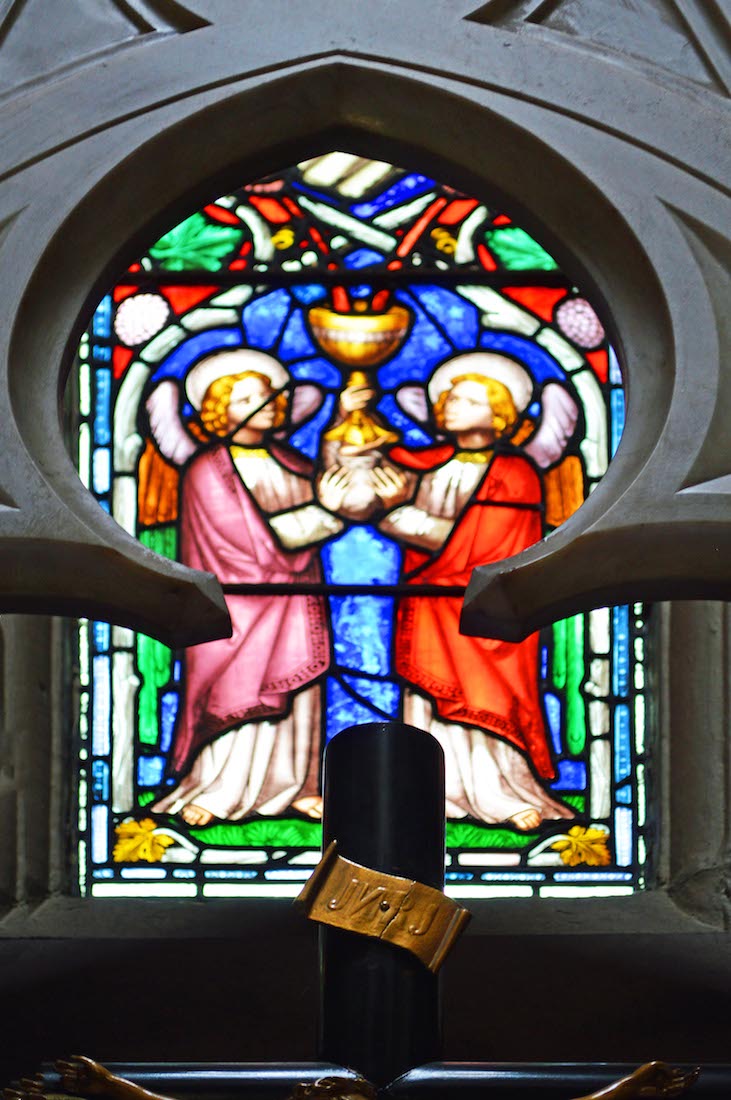
CONCLUSION
I hope you have enjoyed visiting Salford Cathedral with me. It is not a well-known tourist destination, but it has some interesting features. At the time of my visit the general fabric of the Cathedral was showing signs of wear and tear; this may have been remedied since in the 2018 renovations.
I am happy to receive constructive comments or corrections concerning this website. The best websites are the ones which have no errors! I am grateful to my wife Margie who has proof-read these pages.
There is not much background information available on the Cathedral, but I found the ‘Short History and Guide’ helpful. Also the Wikipedia background reproduced on the Index page:
https://en.wikipedia.org/wiki/Salford_Cathedral
I would be glad to hear from anyone who has more detailed information about the Cathedral itself.
My photographs which appear on this site can also be found in higher resolution at:
https://www.flickr.com/photos/paulscottinfo/sets/
Paul Scott Site created 10/ 2018; reformatted 04 / 2020

